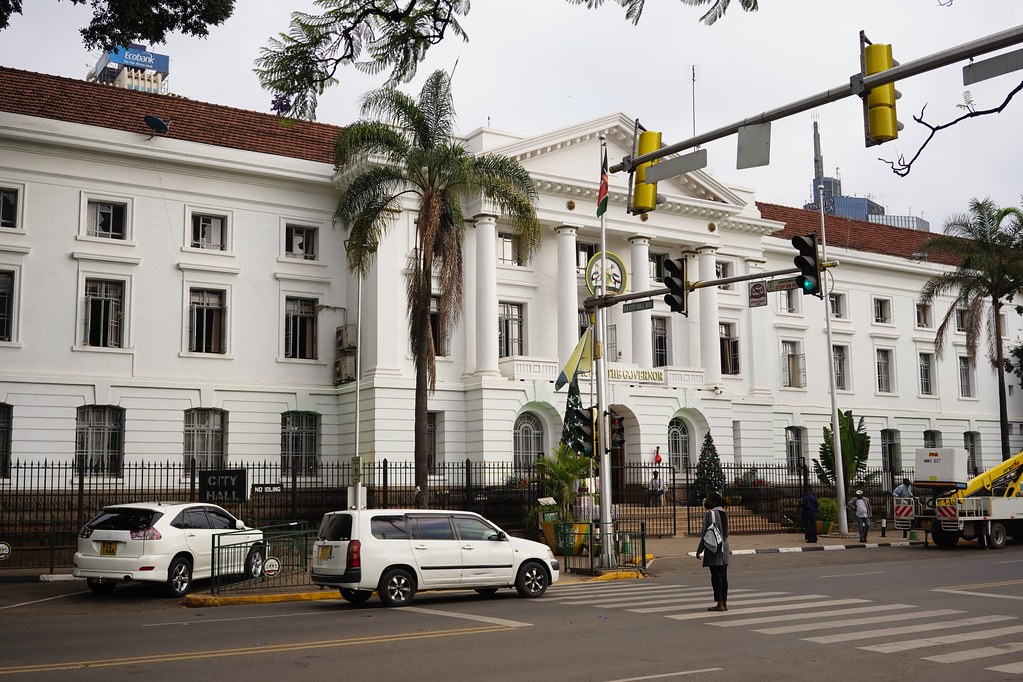Investigations
Mystery of Undocumented Foreign Nationals Caught in Complex Web of Money Laundering Scandal at City Hall

Exclusive Investigation Reveals Stateless Directors at Center of Multi-Million Shilling Fraud Scheme
A sprawling money laundering investigation targeting Nairobi County government has taken a dramatic turn with the discovery that two key figures linked to suspected fraudulent payments have no identifiable nationality, raising serious questions about regulatory oversight and the sophistication of what investigators describe as a “well-weaved” corruption scheme.
The Phantom Directors
At the heart of this mystery are Mitesh Shah Mahendrakumar and Jagat Shah Mahendrakumar, two directors of AR Pharmaceutical Limited who collectively control the company through 500 shares each, yet whose nationality has been recorded as “not applicable” in official company documents—a designation that appears to violate standard corporate registration requirements.
This unprecedented filing anomaly has emerged as investigators from the Directorate of Criminal Investigations (DCI) probe nine companies suspected of siphoning hundreds of millions of shillings from Nairobi County coffers through a sophisticated network of ghost contracts and phantom service deliveries.
The discovery of the stateless directors adds an international dimension to what was initially viewed as a domestic corruption case, potentially complicating efforts to trace assets and hold individuals accountable.
The Web of Companies
AR Pharmaceutical Limited represents just one node in an intricate corporate network under DCI scrutiny. The company’s structure reveals the complex ownership patterns characteristic of this scandal: while the Shah brothers hold all voting shares, four other directors—Sylvia Wambui Kamunyu, Miranda Njeri Gathiru, Keval Dilipbhai Patel, and Bhagyeshkumar Shah—are listed as holding zero shares, essentially serving as figureheads with no real ownership stake.
The remaining eight companies under investigation present equally puzzling ownership structures:
Ramecon Engineering Limited is controlled by Phoebe Kanini Kimasyu, with Walter Zakayo Kilonzi serving as company secretary—a firm that investigators believe received substantial payments for services never rendered.
Burasha General Supplies Limited operates under the joint ownership of Mariam Buraq Hassan and Eva Wairimu Kimani, each holding 500 shares in what appears to be a 50-50 partnership.
Future Link Limited presents perhaps the most lopsided ownership structure, with Lucas Zachaeus Odhiambo controlling 999 shares while Benard Ochieng Onyuna holds just a single share—a disparity that suggests Odhiambo as the true power behind the company.
The Investigation Unfolds
The scope of the alleged fraud began to crystallize through a terse letter dated July 21, 2023, from DCI Director Mohamed Amin to Nairobi County officials. The correspondence, delivered through investigations bureau head David Birech, demanded comprehensive documentation including tender records, contract awards, delivery reports, and purchase orders linked to all nine suspect companies.
“This office is investigating a case of suspected money laundering in which Nairobi County Government is alleged to have fraudulently made payments to companies which did not render services,” the DCI letter stated, outlining the fundamental allegation: that county funds were systematically diverted to companies that existed primarily on paper.
Sources within the DCI, speaking on condition of anonymity due to the ongoing nature of the investigation, describe a scheme involving collusion between county department heads, procurement officers, contractors, and treasury officials—a multi-layered conspiracy designed to circumvent oversight mechanisms and extract public funds through fraudulent transactions.
The Foreign Connection
The presence of directors with Indian nationality—specifically Keval Dilipbhai Patel and Bhagyeshkumar Shah within AR Pharmaceutical Limited—alongside the stateless Shah brothers, suggests potential international dimensions to the money laundering operation. This foreign element raises questions about how funds may have been moved across borders and whether international banking systems were used to obscure the trail of misappropriated county funds.
The “not applicable” nationality designation for the Shah brothers represents an administrative impossibility under normal circumstances, as company registration typically requires clear identification of directors’ citizenship status. This anomaly suggests either systemic failures in regulatory oversight or deliberate manipulation of official records to obscure the true identities of key players.
The Silent Companies
Efforts to reach representatives of all nine companies for comment proved futile, with none responding to inquiries sent via email or text message. This coordinated silence mirrors patterns often seen in complex financial fraud cases where suspects attempt to avoid media scrutiny while legal proceedings develop.
The companies’ failure to respond also raises questions about their operational status and whether they maintain active business operations beyond their alleged role in the county payment scheme.
Systemic Implications
The investigation reveals weaknesses in multiple layers of governance and oversight. The ability of companies to receive substantial county payments while maintaining questionable ownership structures points to failures in due diligence processes, procurement oversight, and financial controls.
The case also highlights regulatory gaps that allowed directors with undefined nationality status to control companies receiving public contracts—a situation that should have triggered additional scrutiny under standard compliance protocols.
The Road Ahead
As DCI investigators work to unravel the full extent of the alleged scheme, the discovery of stateless directors adds complexity to what was already a challenging investigation. Efforts to trace assets, identify ultimate beneficial owners, and pursue accountability may require international cooperation, particularly given the foreign elements now apparent in the case.
The Nairobi County government’s response to the DCI demands will likely prove crucial in determining the investigation’s trajectory and the potential for successful prosecutions. The comprehensive document requests suggest investigators are building cases that may extend far beyond simple procurement fraud to encompass systematic money laundering operations.
For Nairobi residents, the investigation represents both a concerning revelation about the potential misuse of public funds and a test of institutional capacity to hold corrupt actors accountable, regardless of their nationality or the sophistication of their schemes.
The mystery of the undocumented foreign nationals may ultimately prove to be the thread that unravels a far larger tapestry of corruption, one that has allegedly cost taxpayers hundreds of millions of shillings while enriching a network of individuals who sought to remain invisible within the system they were exploiting.
Kenya Insights allows guest blogging, if you want to be published on Kenya’s most authoritative and accurate blog, have an expose, news TIPS, story angles, human interest stories, drop us an email on [email protected] or via Telegram
-

 Investigations1 week ago
Investigations1 week agoBillions Stolen, Millions Laundered: How Minnesota’s COVID Fraud Exposed Cracks in Somali Remittance Networks
-

 News2 weeks ago
News2 weeks agoUS Moves to Seize Luxury Kenya Properties in Sh39 Billion Covid Fraud Scandal
-

 Investigations1 week ago
Investigations1 week agoJulius Mwale Throws Contractor Under the Bus in Court Amid Mounting Pressure From Indebted Partners
-

 News1 week ago
News1 week agoMAINGA CLINGS TO POWER: Kenya Railways Boss Defies Tenure Expiry Amid Corruption Storm and Court Battles
-

 Business3 days ago
Business3 days agoEastleigh Businessman Accused of Sh296 Million Theft, Money Laundering Scandal
-

 Americas1 week ago
Americas1 week agoUS Govt Audits Cases Of Somali US Citizens For Potential Denaturalization
-

 Business3 days ago
Business3 days agoEXPLOSIVE: BBS Mall Owner Wants Gachagua Reprimanded After Linking Him To Money Laundering, Minnesota Fraud
-

 Business2 days ago
Business2 days agoMost Safaricom Customers Feel They’re Being Conned By Their Billing System
















